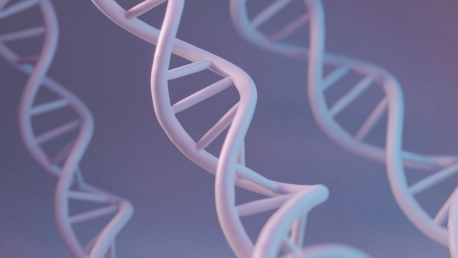In today’s data-driven world, especially in health informatics, the deluge of information from patient records, medical studies, and genomic data demands more sustainable storage solutions. DNA-based data storage emerges as a groundbreaking alternative with the potential to revolutionize long-term data preservation methods. This novel technology aligns with the needs of health informatics, a field burdened by the ever-growing volume of medical data. By harnessing the natural storage capabilities of DNA, this approach offers a compact, efficient, and durable medium, potentially mitigating the challenges of storing vast amounts of data in a sustainable fashion. As researchers and professionals in health informatics grapple with these data challenges, the integration of DNA storage solutions could be a transformative step forward, providing a much-needed answer to the question of how to keep our ever-increasing data troves for the long haul.
The Environmental Dilemma of Current Data Storage
The Unsustainable Energy Demand
The digital age, while transformative for health data management, brings significant environmental challenges. The extensive electricity consumed by the large data centers that house and process this data contributes disproportionately to carbon emissions. Professor Søren Brunak has underscored that the intricate maintenance and accessibility measures — from continuous cooling to relentless server activity — are heavily reliant on energy, making them more ecologically taxing as the quantity of data surges. Given the explosive growth of data, there is a pressing need to transition to more sustainable practices to reduce the environmental burden. Alternative, greener methods must be developed to contend with the expanded digital footprint without forsaking the advancements in the storage and analysis of precious health information. This delicate balance is essential as the digitization of healthcare information continues to ascend, underscoring the necessity for innovation in energy efficiency within the industry.
Seeking Green Storage Solutions
Facing the environmental toll of data storage, the scientific community is proactively seeking to reduce energy demands. Pioneering technologies offer promising alternatives, with the concept of DNA data storage emerging as a cutting-edge solution. DNA, the vessel of life’s blueprint for countless years, could now revolutionize the preservation of digital information, especially the ever-increasing health data records. This biological medium offers a compact, long-term storage option, which could alleviate the ecological footprint of digital data repositories. By harnessing the efficiency and density of DNA to store vast amounts of data, we can step towards a sustainable future that harmonizes the growth of digital data with environmental consciousness. As research unfolds, what was once a mere concept is swiftly approaching the realm of practicality, signaling a transformative shift in the paradigm of data archiving.
DNA: A Blueprint for Future Storage
Preserving Data in DNA Sequences
The innovative idea of using DNA-based data storage is inching closer to becoming a tangible reality. This technique involves encoding digital information into the sequence of DNA’s four nucleotides, which could potentially allow for the storage of colossal amounts of data within a remarkably small space. DNA data storage is not only compact but also promises exceptional longevity. When stored under the right conditions, DNA can maintain data integrity for millennia, all without the continuous power and maintenance current data storage systems demand. This could revolutionize the way we preserve information, making it a sustainable, space-efficient alternative to the sprawling server farms of the modern age. Such a method would represent a significant shift in our approach to data preservation, offering a biotechnological solution to the ever-growing data demands of our digital world.
Cost and Feasibility of DNA Storage
While still a nascent technology, DNA data storage shows promise as a future cost-effective solution, potentially following the downward cost trajectory similar to Moore’s law as observed in DNA sequencing. Early research demonstrates the feasibility of encoding and retrieving data from DNA, highlighting its prospective advantages. The advent of quantum computing may further enhance the speed and efficiency of data processing within DNA storage, despite uncertainties regarding its long-term stability. As we move forward, the imperative for eco-friendly data storage solutions becomes clear, positioning DNA as a potentially sustainable option. The confluence of technological advancements and environmental considerations could make DNA data storage an attractive proposition for the data-intensive demands of the future.









